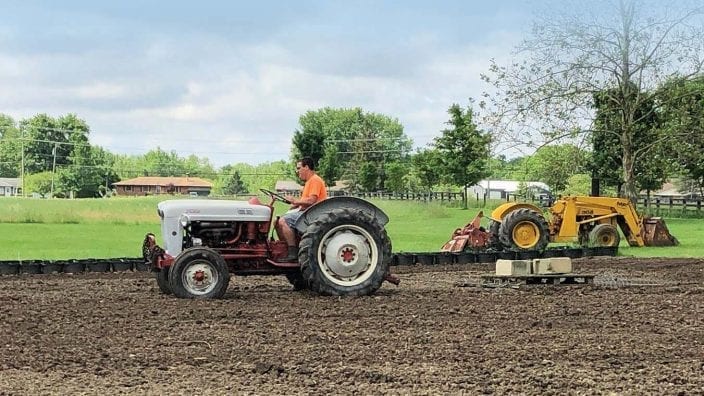Farmer’s Guide to Trucking Regulations available to Ohio Farm Bureau members
The guide includes a farm driver checklist, overview of state and federal regulations and exemptions, CDL qualifications and more.
Read More
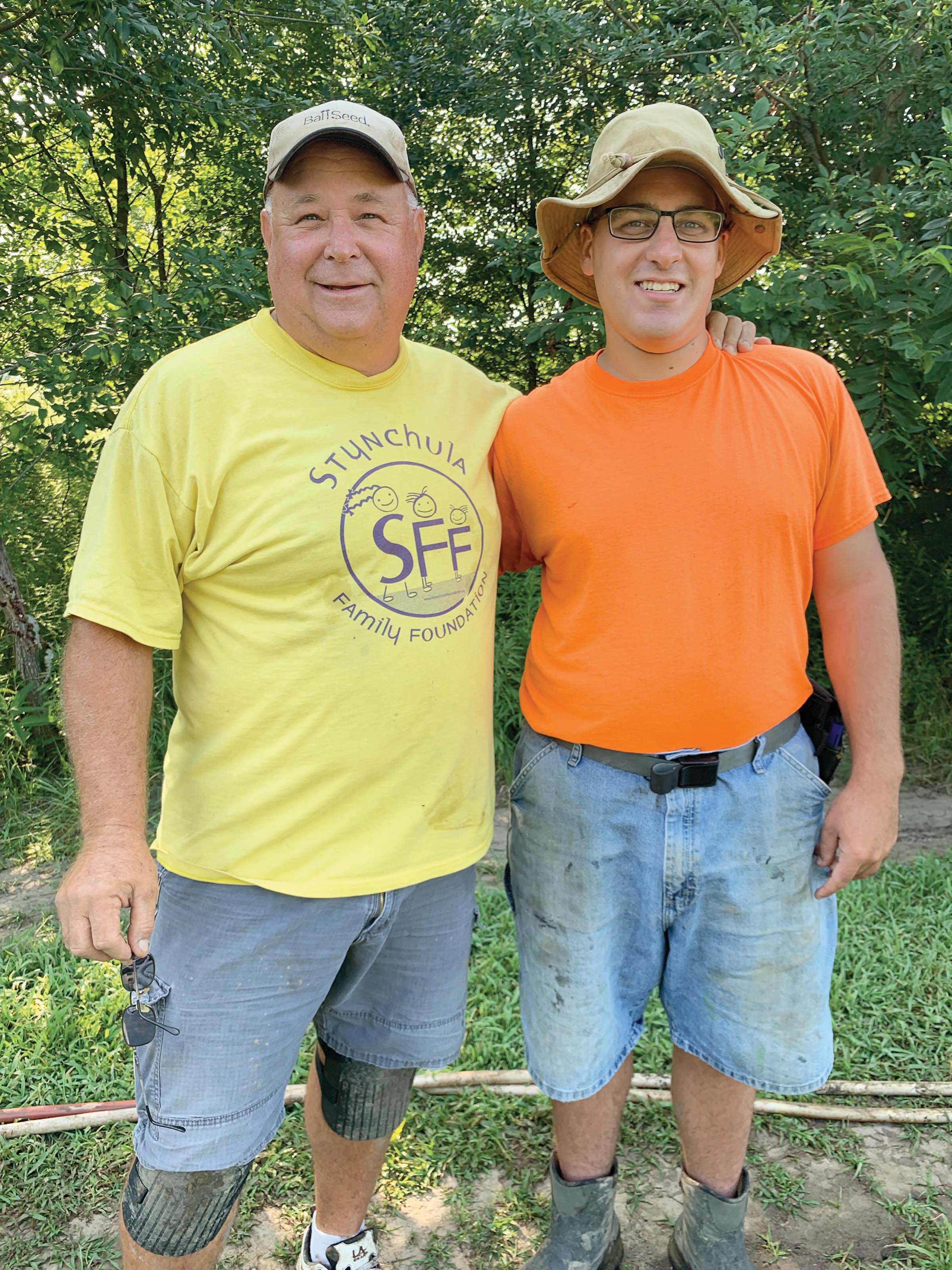
When given the opportunity to plant, water and weed at two small greenhouses and a field of vegetables, some people with autism blossom.
“Our goal is to find out what’s in their hearts and souls and makes them go. Once we find what it is, that’s what we build on,” Stynchula said. Farm work is the latest approach he uses with autistic children. Past efforts included football camps, which were led by pro and high school players, to help kids do drills, exercises and other non-contact aspects of the game. Soapbox derbies were tried, but there was too much down time. The kids lost interest. The greenhouses are part of an informal 100-acre farm in suburban Columbus that is part of a grassroots campaign to help those with autism. It’s spearheaded by Franklin County Farm Bureau member Dave Stynchula of Grove City, who established the agricultural piece of his Stynchula Family Foundation for autistic individuals about four years ago.
Working the land, though, seems to be making a connection.
“They can see things grow and see the whole process, from planting to seeing the flowers grow and picking produce,” Stynchula said. “They can see it complete, from start to finish.”
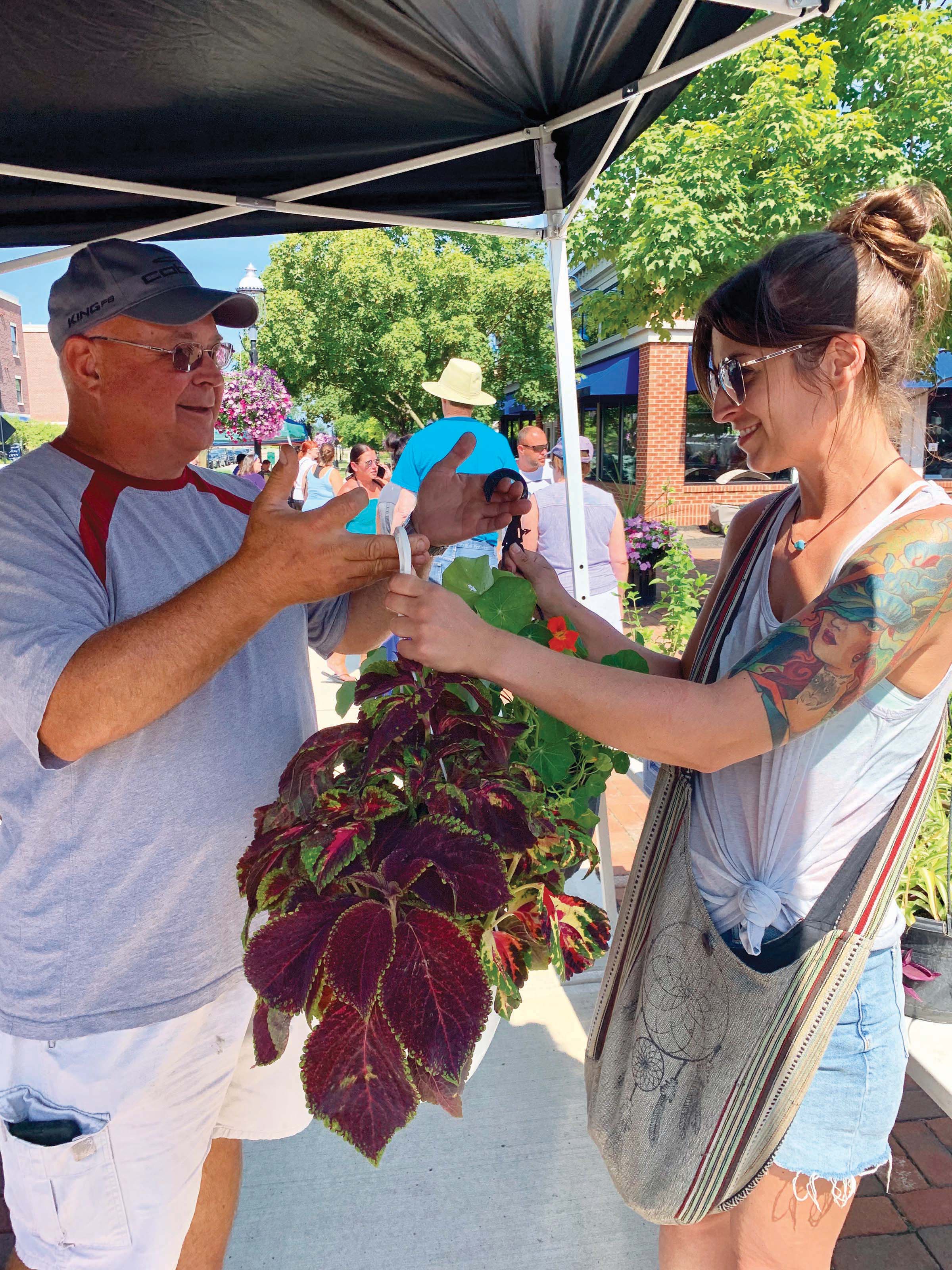
The agricultural component to the foundation is a work in progress, where various approaches to growing plants are tried. Stynchula’s only agricultural experience was a job he loved — milking 128 cows twice daily as a teenager growing up in Pennsylvania.
Along with the small greenhouses is a mix of in-ground and container-grown plants. With an eye toward a larger effort, he acquired a greenhouse-size air-cooler and tobacco planter to speed field planting. Stynchula dreams of a farm where the autistic can learn job and social skills. He’s working with others in the community to hopefully bring his vision to fruition in the next five years, which includes the foundation’s own farmers market.
“He’s got a lot of vision. He’s committed to helping kids with autism,” said Dr. Ed Harris, a friend and Stynchula’s physician. Harris makes space available on his former horse farm for the foundation’s ag efforts. Currently, produce and plants are sold each Saturday morning during the Grove City Area Chamber of Commerce Farmers Market a few miles away.
Between 20 and 30 autistic people have come to the farm over the past two years for informal sessions. No one has blossomed like Trey Stauffer, 26. He had never worked with plants, climbed a ladder, talked much or drove a tractor before coming to the farm. Now he not only helps with farm work but also mows the pastures and lawn for Harris. Stauffer still avoids crowds and has occasional bouts of anxiety that can cause physical illness.
“I love it out here,” Stauffer said. “I found out (about the foundation) through a therapist. He told my dad about it.”
Stauffer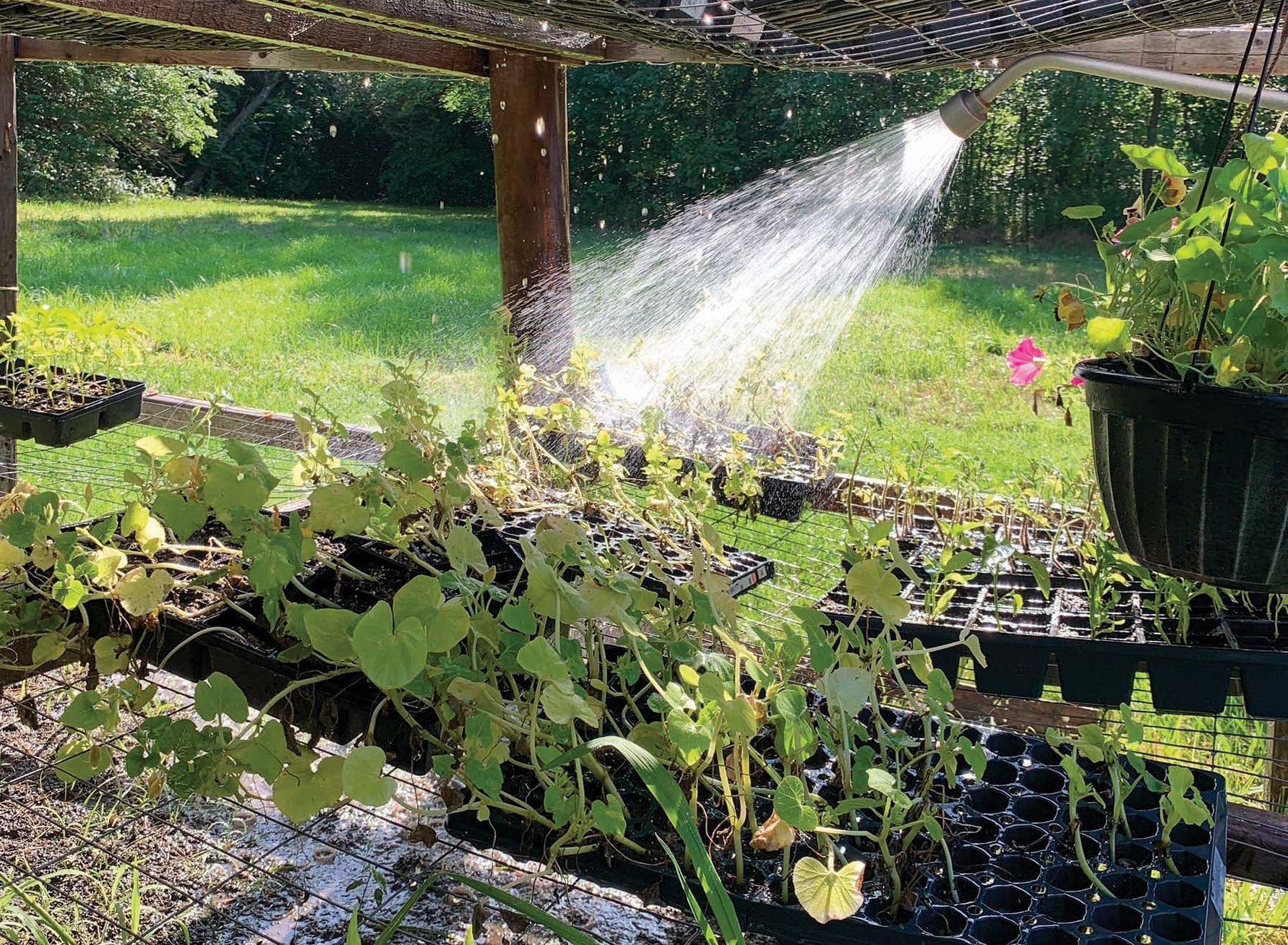 came after the warehouse closed where he operated forklifts and other heavy equipment. He could have stayed home but he decided, “I can’t play video games all day.”
came after the warehouse closed where he operated forklifts and other heavy equipment. He could have stayed home but he decided, “I can’t play video games all day.”
“I couldn’t tell you how many ways that young man has gotten better, his willingness to try things and be open minded,” Harris said. “I have vivid memories of the things he was afraid of, or not willing to do.”
Stynchula’s passion for those with autism ignited after the young child of his former partner in the auto transport business was diagnosed with the condition at about 18 months old. While no one in his family had or has autism, Stynchula felt a call to help in some way. He launched the nonprofit in 1999.
Over the past 20 years, he’s attracted the assistance of family, friends, friends of friends, business associates (his day job is auto auctions), government leaders and more. Projects included Christmas parties and fundraising golf tournaments.
Despite such success, Stynchula’s campaign hasn’t been a stroll down the garden path. Not long before Stauffer came to work three years ago, Stynchula had to vacate borrowed greenhouse space due to changes in the management. With 80,000 vegetable and flower seedlings at risk, he turned to Harris, who offered the use of his farm and his small greenhouse.
“I was just helping a friend, and a friend with good ideas,” Harris said.
Among those Stynchula also works with is former state Rep. Cheryl
Grossman.
“More than half of autistic children end up mainstream,” said Grossman, who is one of the foundation’s biggest fans. “A less compassionate person would have given up. Dave just continues on making the world a better place.”
Autism typically affects a person’s ability to communicate and interact with others. The “spectrum condition” affects individuals differently and to varying degrees. The cause is thought to be abnormalities in brain structure or function.
Signs include:
Autism occurs in about 1 in 59 births, according to the Centers for Disease Control and Prevention.
The U.S. is facing almost $90 billion in annual costs for autism, which includes research, insurance, Medicaid waivers for autism, educational spending, housing, employment, therapeutic services and caregiver costs.
Source: The Autism Society


The guide includes a farm driver checklist, overview of state and federal regulations and exemptions, CDL qualifications and more.
Read More


The emergency fuel waiver to allow the sale of summer gasoline blends containing 15% ethanol will lengthen the period during which Americans can continue buying E15 from June 1 to Sept. 15.
Read More

The Small-Scale Food Business Guide covers federal and state regulations for selling food products such as raw meat, dairy, eggs, baked goods, cottage foods, fruits and vegetables, honey and more.
Read More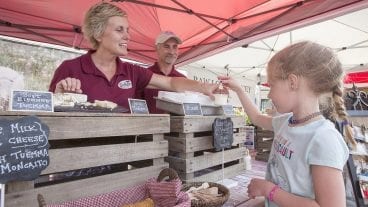
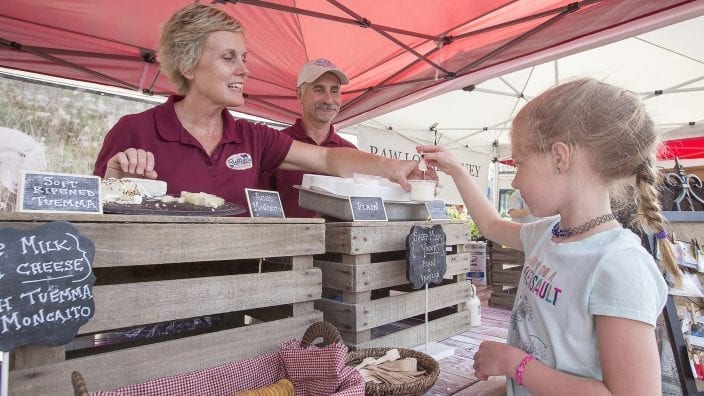
New resources and technology are broadening the different types of sales tools and strategies available to farmers.
Read More

ODA will enroll 500,000 acres into the program for a two-week sign-up period, beginning April 22, 2024, through May 6, 2024. Contact local SWCD offices to apply.
Read More

Katie Share of Columbus has been named ExploreAg and Youth Development Specialist for Ohio Farm Bureau.
Read More

Mary Klopfenstein of Delphos has been named Young Ag Professional and Ag Literacy Program Specialist for Ohio Farm Bureau.
Read More

The plan has been updated to give sole proprietors access to more rate stability and a smart solution that offers potential savings on health care.
Read More

The American Farm Bureau Federation, in partnership with Farm Credit, is seeking entrepreneurs to apply online by June 15 for the 2025 Farm Bureau Ag Innovation Challenge.
Read More

Adele Flynn of Wellington has been elected treasurer of the Ohio Farm Bureau Federation and now holds the third highest elected office in Ohio’s largest and most influential farm organization.
Read More